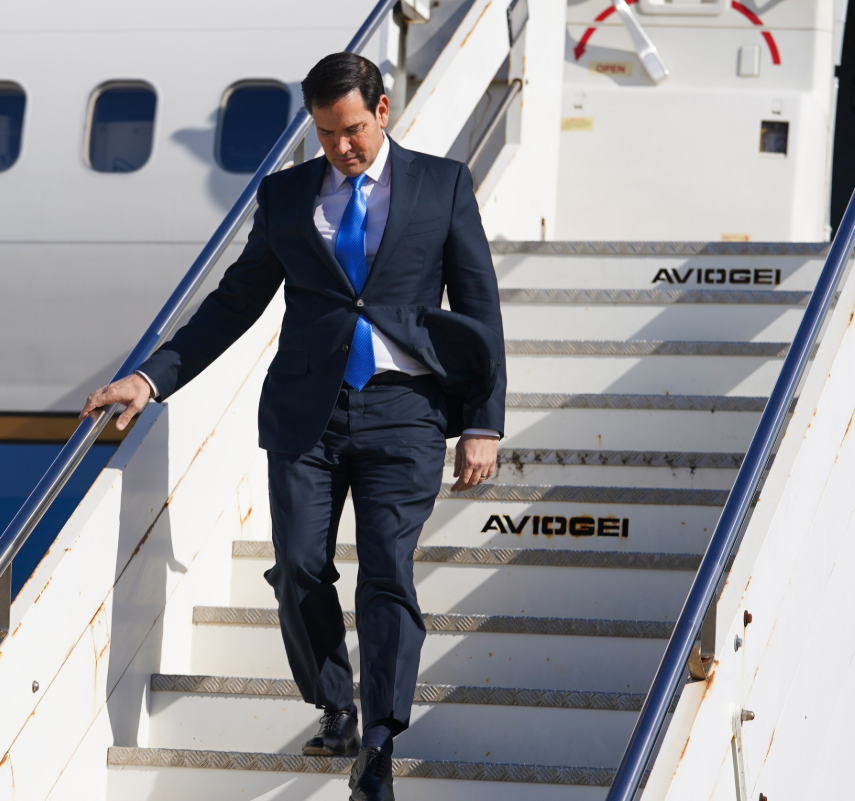United States Warns Iran For Closing Strait of Hormuz:Tensions between the US and Iran escalate as the Iranian Parliament approves the closure of the Strait of Hormuz, a vital route for global oil. US Secretary of State Marco Rubio warns Iran against retaliation, revealing Iran’s growing nuclear capabilities and urging China to step in diplomatically. The world watches closely as a major crisis looms.
United States Warns Iran For Closing Strait of Hormuz
The standoff between the United States and Iran has reached dangerous new levels after recent U.S. airstrikes on Iranian nuclear facilities. In retaliation, the Iranian Parliament passed a bill authorizing the closure of the Strait of Hormuz — a vital waterway through which nearly 20% of the world’s oil supply flows. The potential shutdown of this strategic chokepoint has triggered strong warnings from Washington.
U.S. Secretary of State Marco Rubio addressed the situation directly, saying, “If Iran decides to close the Strait of Hormuz, it will require a response not only from the United States but from other countries as well.” Rubio further underscored the high stakes, stating, “If Iran retaliates, it’ll be the worst mistake they’ve ever made.”
The Secretary of State revealed alarming new intelligence on Iran’s nuclear capabilities. According to Rubio, “Iran has enough highly enriched uranium to build at least 9 or 10 bombs.” This disclosure has heightened global concerns over Tehran’s nuclear ambitions and the possibility of rapid weaponization.
Rubio also made a direct appeal to China, urging it to step in diplomatically. “I encourage the Chinese to contact Iran regarding the Strait of Hormuz,” he said, signaling Washington’s hope that Beijing might help de-escalate the rising tensions.
Despite the mounting crisis, U.S. officials reiterated that Washington does not seek open conflict. The U.S. Secretary of Defense stated, “As President Trump has stated, the United States does not seek war, but let me be clear: we will act swiftly and decisively when our people, our partners, or our interests are threatened.” The Defense Secretary went on to praise the U.S. military’s recent operations: “They did what they needed to do with precision and skill that no other military in the world can do.”
Secretary Rubio emphasized the broader strategic goal behind the U.S. actions: “What we want now is to ensure that Iran never has nuclear weapons.” Recalling the President’s earlier message, he added, “The President told them, ‘if we don’t get a deal, which is what we wanted, then I’ll have to handle it differently.’ And that’s what he did last night.”
The situation remains extremely volatile. The closure of the Strait of Hormuz would not only disrupt global oil supplies but could ignite a major regional or even global conflict. The world watches closely as diplomatic efforts scramble to contain the crisis and prevent further escalation.
Disclaimer:
The information provided in this article is for informational and journalistic purposes only. It is based on publicly available reports, statements, and developments concerning the ongoing geopolitical situation between the United States and Iran. The content does not represent any official position, advice, or endorsement by any government, institution, or organization. All statements attributed to individuals, such as U.S. Secretary of State Marco Rubio and the U.S. Secretary of Defense, are based on reported quotes and should be interpreted in the context of evolving international affairs.
Geopolitical situations are highly dynamic and subject to rapid change; readers are advised to stay updated through multiple credible news sources. This article does not intend to promote conflict or take sides in any international dispute. The closure of the Strait of Hormuz, potential military actions, and related events are complex matters with significant global implications.
The author and the blog platform are not responsible for any decisions, interpretations, or actions taken by readers based on the information presented. Always consult official government sources and professional experts when evaluating matters related to international relations, national security, and military affairs.

